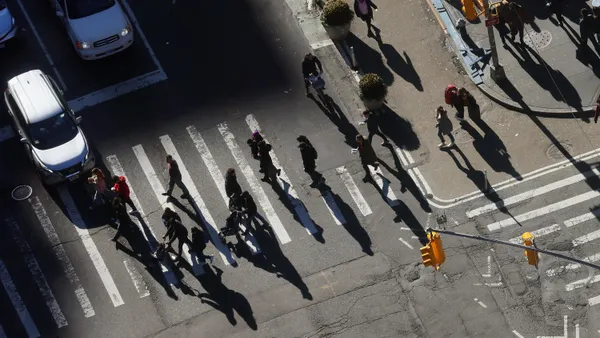Dive Brief:
- A fourth of adults with employer-sponsored plans are underinsured, according to Commonwealth Fund's latest biennial report assessing the health insurance landscape. Underinsurance is a potential signal that some adults may be unable to pay their medical bills, posing possible problems for providers and hospitals who prize patients with commercial coverage.
- Nearly half (43.4%) of working-age adults in the U.S. were inadequately insured in the first half of 2020, on par with figures from Commonwealth's previous report from 2018. Those adults were either uninsured for a period of time during the past year, experienced a coverage gap or had high out-of-pocket costs or deductibles relative to their income.
- The share of privately insured adults with deductibles over $1,000 has more than doubled since 2010 and has outpaced income, putting a strain on workers, Commonwealth found.
Dive Insight:
The current public health crisis only threatens to exacerbate the growth in un- and underinsurance, as the economy is burdened by the novel coronavirus and its effects.
"Coverage insecurity will leave people with mounting medical debt, as well as significant financial barriers to getting the health care they need to survive the pandemic and lead healthy and productive lives," according to the report, which is based on a survey of more than 4,000 adults between the ages of 19 and 64.
People without adequate coverage often delay care and filling medications, according to the study. That poses additional problems for the healthcare system as delayed care can lead to deteriorating (and likely more expensive) health conditions.
Initially, it was feared that as millions of Americans lost their jobs they too would lose their connection to employer-sponsored coverage. The Kaiser Family Foundation estimated in May that as many as 27 million Americans lost coverage as a result of job losses that were spurred by the pandemic. However, an August Urban Institute report found coverage losses may not have been as drastic as initially feared, despite the record number of lost jobs.
Yet even with coverage, affordability remains a key problem.
The Commonwealth report found one-third of adults reported having a cost-related problem in getting needed healthcare. Unsurprisingly, the highest rates were among those who spent some time uninsured in the past year. But perhaps most concerning was cost-related problems among those with adequate insurance and without any interruptions in coverage throughout the year — most among those with employer plans.
Another pressing issue is the level of high uninsurance among people of color, young adults, workers at small businesses and people with low-incomes.
The authors outline several policies that could help consumers gain comprehensive coverage, including expanding Medicaid in the 12 states that have yet to open the program up to working adults without children and with incomes within 138% of the federal poverty level. Other policies options include enhanced subsidies for marketplace coverage and banning plans not compliant with the Affordable Care Act, plans the Trump administration has expanded under the president's term.
Researchers warned consumers are likely to face dire consequences without some policy action, noting "ongoing policy inaction on insurance coverage combined with the raging pandemic is certain to tip the nation's health care affordability problems into crisis for U.S. households."














